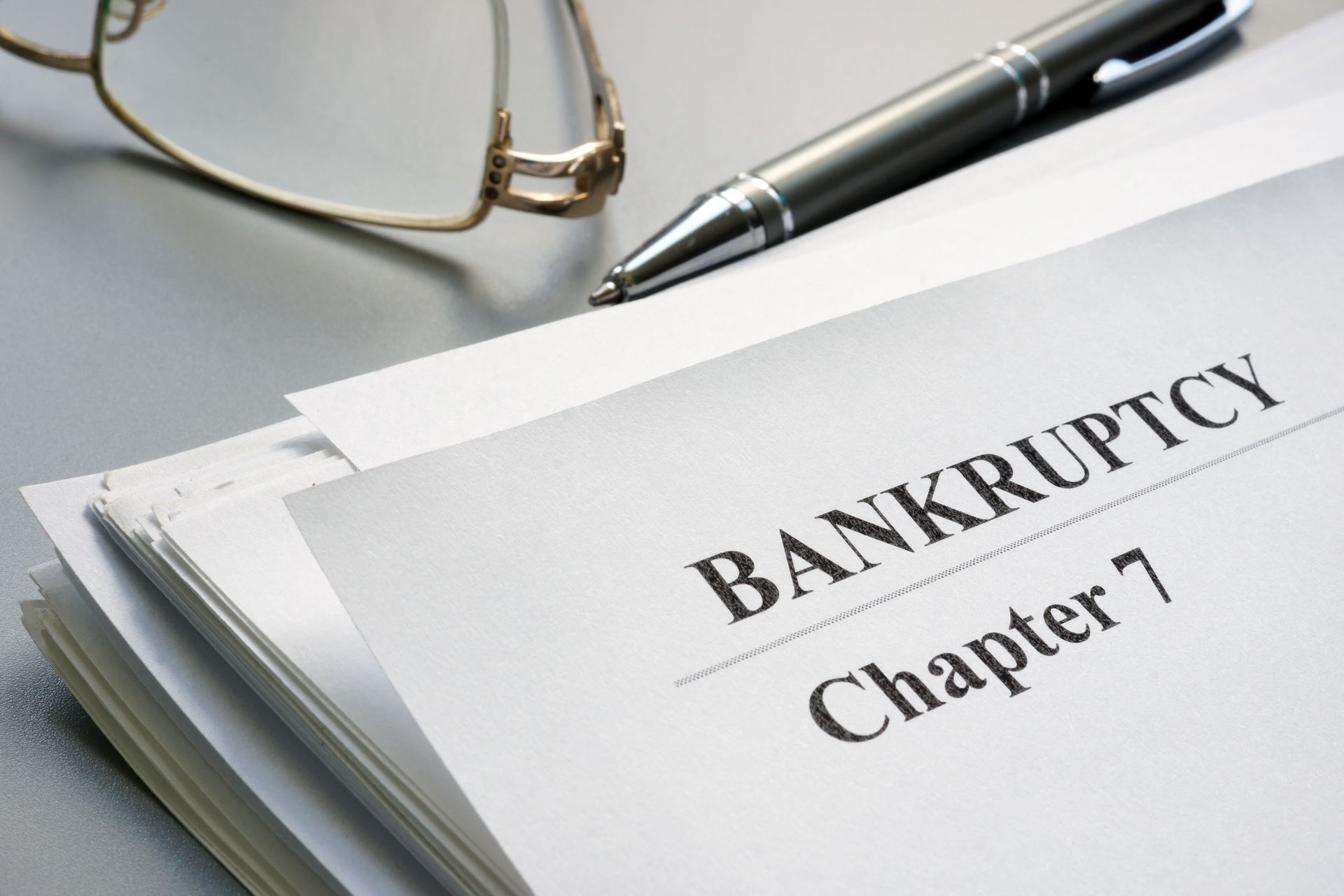8 Questions to Ask Your Bankruptcy Lawyer
Financial stress can feel overwhelming, especially when debts seem impossible to manage. For many people, bankruptcy becomes a path toward regaining control and starting fresh—but navigating that path can be confusing without the right guidance. Hiring the right bankruptcy lawyer ensures that you understand your options, protect your assets, and move forward with a plan that fits your situation.
According to Forbes, as of September 2024, bankruptcy filings among individuals aged 18 to 29 were about 13% higher than during the same time the year before, showing how financial strain continues to impact younger generations. Whether you’re dealing with medical debt, job loss, or mounting credit card balances, asking the right questions before hiring an attorney can help you make an informed, confident choice. Here are eight essential questions to guide your search and ensure your legal advocate is the right fit for your needs.
1. Experience
One of the most critical factors when choosing a lawyer to guide you through bankruptcy is experience. Attorneys with a long track record in this area tend to anticipate challenges before they arise, making the process smoother and less stressful. It’s important to ask how many years the lawyer has been practicing and how many bankruptcy cases they handle annually. The more cases they’ve handled that resemble yours, the more insight they can provide about outcomes and strategies.
You can also ask about success rates and whether they have experience with Chapter 7 or Chapter 13. While every case is unique, understanding their experience helps you gauge whether they’re prepared for the complexities of your situation. A seasoned lawyer will not only know the law but also the local court systems, trustees, and procedures that can affect your case’s timing and success.
2. Credentials
A lawyer's credentials reveal a lot about their professionalism and credibility. Ask about their bar association membership and any additional certifications they have. Attorneys who stay active in professional organizations demonstrate that they’re keeping up with evolving regulations and legal trends. This ongoing education ensures they bring up-to-date knowledge and strategies to your case, rather than relying on outdated practices.
Checking public records for any disciplinary actions can also give you peace of mind. You can also look up client reviews or testimonials to see how others describe their professionalism and responsiveness. The more transparent and confident a lawyer is about their background, the more likely they are to serve as a reliable advocate throughout your financial recovery.
3. Process
Filing for bankruptcy involves a structured series of steps, and understanding that process helps reduce anxiety and confusion. A good lawyer should be able to walk you through the timeline from consultation to discharge. Ask about what documentation you’ll need to gather, when court appearances may occur, and how long the process typically takes for your situation. You should have a clear understanding of each step to ensure you’ll be able to meet deadlines and follow through on requirements.
You’ll also want to know how your attorney manages communication throughout the process. Will they provide regular updates or only reach out when something major happens? Ask whether you’ll be communicating directly with the lawyer or their support staff. Understanding the structure of their process not only builds trust but also gives you a realistic sense of what to expect as your case progresses.
4. Price
Bankruptcy can be financially stressful enough without surprises in legal fees. One of your first questions should be about the lawyer’s pricing model. Make sure to ask for a written breakdown so you can compare services fairly between firms.
A transparent bankruptcy lawyer will explain what’s included in their quoted price and what could cost extra. They should also clarify payment options. Clarity about costs upfront prevents misunderstandings later and ensures you can focus on getting financial relief rather than worrying about new bills. Remember: honesty about money is a good sign of professionalism and empathy.
5. Communication
Good communication is vital when working with a lawyer, especially during a stressful financial process. Ask how and when you can contact your attorney—whether through email, phone, or an online portal. You should also find out their average response time to messages and whether you’ll primarily interact with the lawyer themselves or a paralegal. Establishing these expectations early helps avoid frustration and ensures you’re kept informed.
An accessible bankruptcy lawyer should make you feel comfortable asking questions and confident that your concerns are being addressed. Communication style can also reflect professionalism: does the lawyer take time to explain complex terms clearly, or do they rush through your questions? Bankruptcy is a major life decision, and you deserve a representative who treats your case with care, respect, and patience from beginning to end.
6. Strategy
Every bankruptcy case requires a tailored strategy because no two financial situations are exactly alike. Ask your lawyer how they determine whether you qualify for Chapter 7 or Chapter 13 and what factors they consider when recommending one over the other. A thoughtful lawyer will assess your income, assets, debts, and goals before suggesting the best path forward. Their ability to create a personalized plan indicates a deeper understanding of your needs and priorities.
Your bankruptcy lawyer should also discuss long-term implications. For instance, how will it affect your credit score, assets, or ability to obtain future loans? A strategic lawyer looks beyond the immediate filing to help you set a foundation for financial recovery. The right strategy isn’t just about eliminating debt—it’s about rebuilding your financial health in a sustainable, realistic way.
7. Alternatives
Bankruptcy is a powerful tool, but it’s not always the only or best option. A responsible lawyer will help you explore alternatives before recommending filing. Ask about debt consolidation, repayment plans, or creditor negotiations that might offer relief without court involvement. Sometimes, addressing debt through settlement or restructuring can help you recover faster while avoiding the long-term credit impact of bankruptcy.
If your bankruptcy lawyer immediately pushes filing without discussing these alternatives, consider it a red flag. The best attorneys act as advisors, not just service providers—they want what’s best for your overall financial future. By exploring all your options, you’ll make a decision based on knowledge, not fear, and feel more confident that bankruptcy truly is the right step for you.
8. Reputation
Something that speaks volumes about a lawyer’s professionalism and reliability is their reputation. Before hiring, take time to read online reviews, testimonials, and disciplinary records through your state bar association. You can also ask the lawyer directly for references or examples of past cases similar to yours. A reputable attorney will welcome transparency and provide information confidently.
When evaluating a potential bankruptcy lawyer, pay attention to how they communicate during your consultation. Do they listen carefully and answer questions thoroughly, or do they rush you? Trust your instincts. A strong reputation is built on honesty, compassion, and consistent results—qualities you should prioritize as you choose the person who will guide you through one of the most important financial decisions of your life.
Hiring the right attorney can make a world of difference in your financial journey. Asking thoughtful, informed questions ensures that you’re not only choosing a skilled professional but also someone who aligns with your values and communication style. Bankruptcy is a big step, and the right bankruptcy lawyer can transform it from a daunting legal process into a path toward a fresh start and financial freedom.
Ready to take control of your financial future? Contact Sam Henry IV Attorney At Law today to schedule a free consultation and get clear answers to your most pressing questions. We’re committed to helping you rebuild your financial life with understanding and expertise—because everyone deserves a second chance at stability and peace of mind.





Share On: